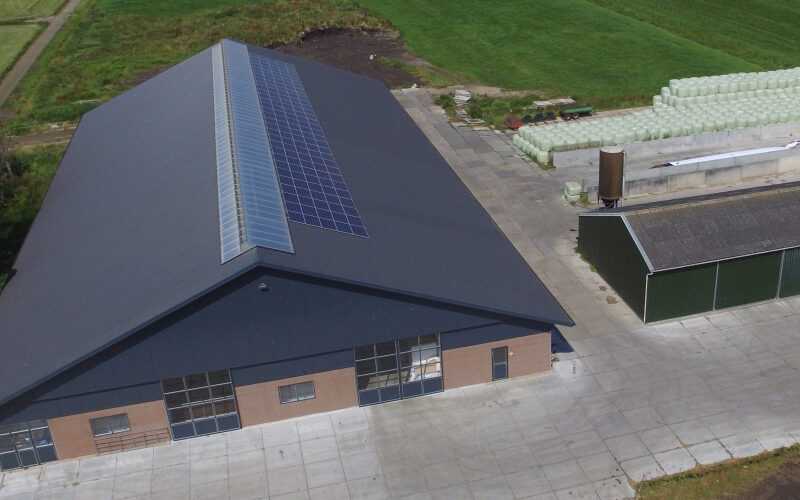Agricultural & livestock concrete
AGRICULTURAL & LIVESTOCK CONCRETE
Companies active in agriculture and livestock farming find modular building blocks interesting because they can be easily placed and (re)moved. They use concrete slabs for paving and concrete blocks for partitions. Concrete slabs are also often called industrial slabs.
This term refers to a cheaper variant compared to the factory that produces the more expensive Stelcon slabs. Stelcon is a well-known brand name. Stelcon concrete slabs are indeed of high quality. Nevertheless, an industrial slab does not always have to be a Stelcon concrete slab. There are many more good manufacturers producing high-quality concrete industrial slabs these days.
Given that the farmyard, barns and storage areas of farmers and stockbreeders are often bulky, and the farms themselves have a lot of machinery, the production of concrete elements is done in-house. With proper instructions and sturdy steel moulds, concrete blocks and concrete slabs are produced independently. The lifting equipment is designed so that farmers and horticulturists can use it with their available transport equipment such as tractors, forklifts, telehandlers and shovels.
If we look at the agricultural sector in more detail, it can be divided into:
ARABLE FARMING
Concrete slabs are ideally suited for paving agricultural land and creating paths for heavy vehicles to drive over. The need for functional paving can be easily met by applying precast concrete slabs. Industrial concrete slabs prove their worth under the toughest conditions and last a lifetime.
Concrete blocks are used for access dams, and are also seen as counterweight on long-haul vehicles such as tractors.

LIVESTOCK FARMING
Livestock farms use concrete slabs as sturdy paving for indoor and outdoor floors. Stable floors require virtually no maintenance when made from concrete slabs. Concrete industrial slabs offer a proven long service life as farmyard paving.
For manure storage, both precast concrete slabs and precast concrete blocks are used. The building system offers optimal functionality for storing solid manure and the storage area is easy to adapt and expand.
Animal feed such as silage grass and silage maize is stored in silage pits. Silage pits have a floor of concrete slabs with retaining walls made of concrete blocks to ensure efficient storage of silage.
In short, the concrete building elements are ideally suited for farmyards, storage areas, livestock housing and pits for silage and manure.
HORTICULTURE
In horticulture, precast concrete slabs are ideal for yard, road and storage surfacing. An eminently useful solution for paving sites quickly and efficiently. The slabs prove their worth day in, day out.
There are numerous applications in this industry where you will find concrete slabs and stackable concrete blocks. In the cultivation and processing of vegetables, fruit, flowers and plants, the concrete slabs have been used in the industrial floors. Many areas are provided with solid paving, parking spots or heavy-duty paths within and around greenhouses.
Concrete blocks are used for storage areas, crash barriers, fences, retaining walls and boundary walls.



